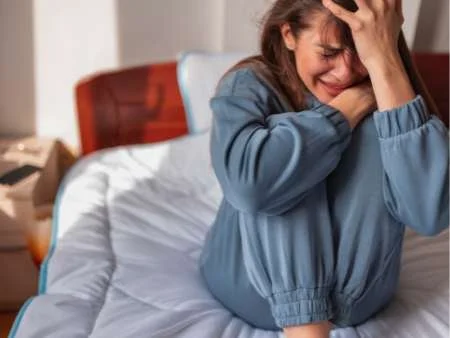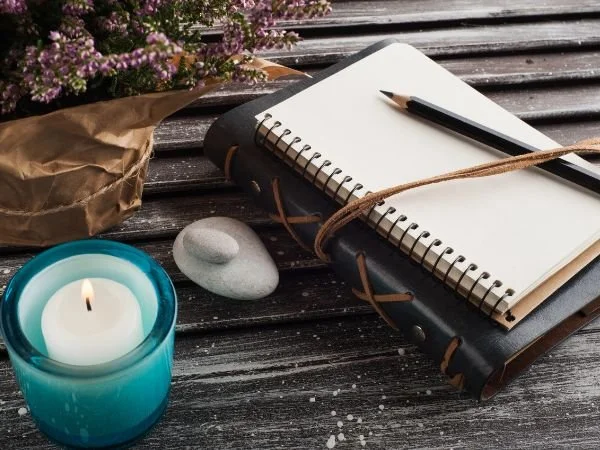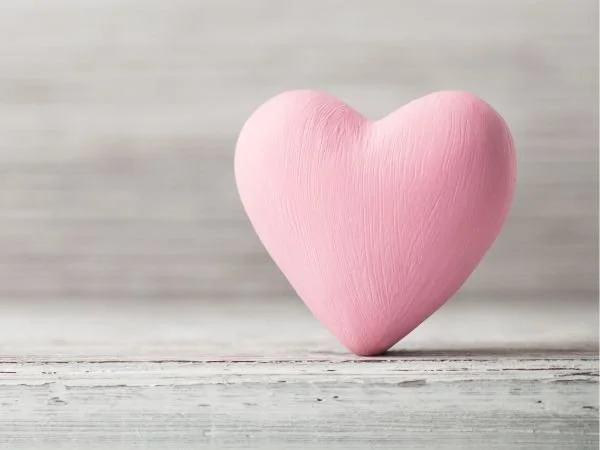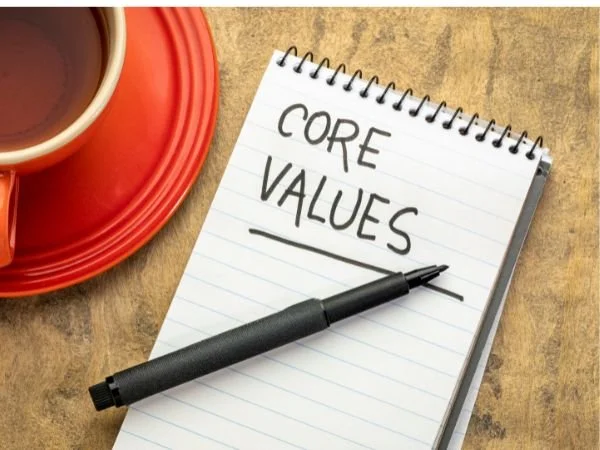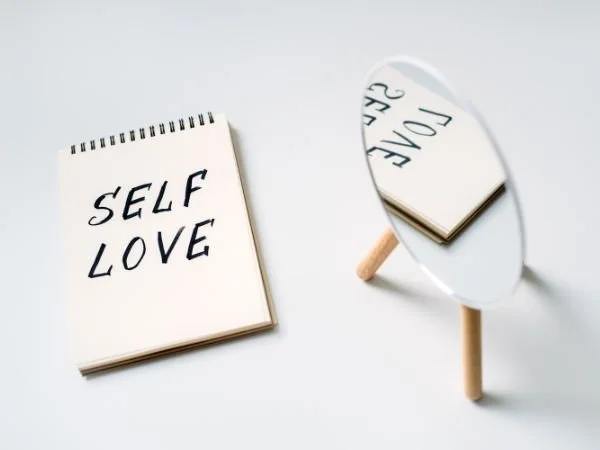78: Rebuilding Self-Worth After Sexual Assault & Rape
This episode is about healing from sexual assault and rape, and specifically focused on the question, “How do you rebuild your sense of self-worth after experiencing sexual assault or rape?” After sexual trauma, many survivors continue to suffer from lingering feelings of low self-worth, fear, anxiety, depression, and feeling stuck or lost. In this episode, I am going to dive into self-worth, why your sense of self-worth is impacted by sexual assault and rape, and how to begin the process of rebuilding your self-worth one step at a time.
This post contains affiliate links to some of my favorite tools and resources. As an Amazon Associate, I earn from qualifying purchases. Full terms & conditions here.
Free Resources 📑
Recommended Episode 🎙️
46: Healing Sexual Trauma: Recovering from Sexual Assault & Rape through Healing One Layer at a Time
8: Healing from Rape & Sexual Assault: Learning to Love Ourselves Again After Sexual Violence
Download the full list of FREE journal prompts!
Book Recommendation 📚
The Body Keeps the Score: Brain, Mind, and Body in the Healing of Trauma by Bessel van der Kolk
Waking the Tiger: Healing Trauma by Peter Levine
The Courage to Heal: A Guide for Women Survivors of Child Sexual Abuse by Ellen Bass
The Sexual Healing Journey by Wendy Maltz
Timestamps ⏱️
Introduction: 00:15
Question 1: 2:16
Outro: 25:46
Have you followed and left a review for New View Advice?
Let me know what you think of the podcast! Podcast followers and ratings help bring new listeners to the show, as well as help me to continue creating content. So if you enjoyed the show, I’d love to ask you to follow and leave a rating on your podcasting platform by:
Head to New View Advice on Apple or Spotify
Click Follow on your podcasting platform
Scroll down (or when promoted) click the 5 star rating!
-
This podcast was transcribed by an AI tool called Castmagic. Please forgive any typos or errors.
Amanda Durocher [00:00:01]:
Welcome to New View Advice. I'm your host, Amanda Durocher, and I invite you to join me here each week as I offer advice on how to move through whatever problem or trauma is holding you back from living life to the fullest. Let's get started.
Hi there, beautiful soul. My name is Amanda Durocher, and this is New View Advice. If you're new here, this is a healing centered advice podcast where I offer guidance for the healing journey. It's not my intention to give you all the answers. I believe you have all the answers.
Amanda Durocher [00:00:26]:
You just may need a new view and a little help along the way. Thank you so much for joining me today. Today's episode is about healing from sexual assault and rape and specifically focus on the question, how do you rebuild your sense of self worth after experiencing sexual trauma. I received this question from a new view advice listener, and I think it's a really great question because I don't think people fully understand how how the feelings of low self worth are a big reason why healing from sexual assault and rape is such a long and complicated journey. Even after time has passed or if you're able to return to what feels like a normal life. The lingering feelings of low self worth don't just go away and can often leave you feeling stuck, scared, anxious, or depressed, and these feelings can continue on for years. I know that was the case in my experience is that I was sexually assaulted in my childhood and in my teens, and I was still dealing with these feelings of low self worth into my twenties and early thirties. So today, I'm going to dive into self worth, why your sense of self Worth is impacted by sexual assault and rape and how to begin the process of rebuilding your self worth 1 step at a time.
Amanda Durocher [00:01:29]:
My intention for this episode is to assist you in rebuilding your sense of self worth and help you to remember that no matter what happened, you are still worthy. You have always been worthy, and you've never stopped being worthy. Your worthiness is never taken from you even if it temporarily feels like that. You are always worthy, and this is something I am reminded of over and over again on my own healing journey. Before we jump in, I just wanted to mention that if you're looking for more support healing from sexual Consult and rape, I have more free resources on my website, including additional podcast episodes, journal prompts, and a meditation to assist you in your healing process, and you can find all these resources on my website at newviewadvice.com/78. So with that, let's jump on in. Hi, Amanda. How do you heal self worth issues after the trauma of sexual assault? Thank you so much for this question.
Amanda Durocher [00:02:23]:
First, I wanna say that I'm so sorry you were sexually assaulted and now find yourself struggling with self worth issues. You are not alone. I know I have struggled with my own self worth since being assaulted. And, honestly, I don't know any survivor who has not struggled with low self worth, and I view low self worth as a symptom of trauma. Trauma impacts people in many different ways, and one of them is very often that it impacts our own self worth. So thank you again for asking this question because I think this is a really important conversation and for us to have. So right here up front, I wanted to define self worth. So self worth is the internal sense of being good enough and worthy of love and belonging for others.
Amanda Durocher [00:03:01]:
And connecting with our self worth is the embodiment of remembering we are always worthy, and we are always worthy of love from ourselves and others. So many people feel like they aren't enough, and a reason for this is trauma. As I mentioned, I believe low self worth is a symptom of trauma. And so for sexual assault and rape survivors, I really believe that this can leave us feeling low self worth. So why is our sense of self worth impacted by sexual assault and rape? Our self worth is impacted because, as I mentioned, low self worth is a symptom of trauma. And what I mean by that is that many times when we are raped and sexually We create beliefs about ourselves and the world that are untrue and are false, but in that moment in time, we believe they are true. One of these beliefs is very often, I'm not good enough, and I'm unworthy. Rape and sexual assault is a violent act.
Amanda Durocher [00:03:52]:
It's a horrible trauma to survive. I know. Just like many of you listening know as well. And many of us cannot comprehend why something so horrible happened to us. And one of the main reasons why we're trying to figure out why this happened is to begin to recreate a sense of safety within us so that we can ensure this does not happen again. Because the truth is rape is a horrible act. You did nothing wrong. You did not ask for it.
Amanda Durocher [00:04:18]:
You did not deserve it. There is nothing you did to deserve something so horrible happening to you. It is an unfair and unjust act. You did not deserve what happened to you, but we often begin to tell ourselves that we did do something wrong, and that contributes to low self worth. So for me, some of the beliefs that I created that contributed to my low self worth were beliefs such as I'm unworthy, I'm ugly, this wouldn't happen to a pretty girl, My life isn't worth living. No one will ever love me. This was all my fault. I deserved this and so on.
Amanda Durocher [00:04:53]:
So many beliefs were created in that moment because my mind could not understand why something so horrible happened to me. It could not figure it out logically, so it started to create stories. And many times before this act of sexual assault and rape, many of us already had these beliefs of unworthiness and not enoughness. I know that was true in my life, specifically with my teen assault. I already had low self esteem. So when this Event happened. It devastated my self esteem. I went from low self worth to no self worth because All this self worth I had was shattered in that moment.
Amanda Durocher [00:05:32]:
So this event really impacted my self worth, and it continued to impact my self worth moving forward. My low self worth for a long time was a way that I tried to remain safe. So my low self worth contributed to a lack of confidence, a lack of wanting to speak up. It contributed to a lot of fear and anxiety. And though that these were very hard things for me to have. Right? It's not comfortable not being confident in yourself. It's not comfortable being Anxious. It's not comfortable being depressed.
Amanda Durocher [00:06:00]:
These were actually all symptoms of the trauma I survived, and in a twisted way, it was my body's way of trying to keep me safe. Because if I was anxious all the time, I was always on the lookout for danger. I was being hypervigilant. If I was depressed, I wasn't creating and showing up in the world and being vibrant because that felt really scary for me. For a very long time, it was too scary for me to feel good. It was actually easier for me to be depressed than to be happy because I was so afraid of my happiness being taken away, and I was so afraid of being shattered and devastated again. Nobody could hurt me when I had low self worth, but that wasn't true. That was another false belief.
Amanda Durocher [00:06:38]:
Right? Nobody can hurt me when I have low self worth, But I was being hurt by people all the time because people weren't seeing the real me, so I was developing more and more beliefs about myself that were not serving me. So I believe that when trauma happens, it's like a rock hitting the water. Right? And you drop a rock in the water. That's the trauma. That's a traumatic event, that rock hitting the water. And then as the rock Sinks to the bottom, ripples start to ripple out from that place where the rock hit the water. Right? So those ripples are the beliefs So you've created so you begin to create more and more beliefs about yourself and the world. So this traumatic event that is one moment in time ends up having this Big effect.
Amanda Durocher [00:07:16]:
Those ripples can go all the way across the water from the point of impact all the way to the edges. This ripple effect is why trauma is so hard to heal because that one moment in time gets stuck in the body, that rock. And then there are many beliefs, and there are ripple effects. Another type of ripple effect could be that Maybe you tried to share with somebody what happened to you and they didn't believe you. That can contribute to low self worth. Oh my gosh. I'm not worthy of being believed. Oh my god.
Amanda Durocher [00:07:47]:
I'm not enough. Oh my gosh. Maybe this person's right. Maybe I was asking for this. Maybe you didn't have anybody to share with. I know this was true in my life that when I began talking about my experiences with sexual assault and rape, people did not wanna talk about I was met with a lot of backlash, a lot of shutting down, people who didn't believe me and my story, and that was really devastating. I created more and more beliefs about myself, and it contributed to more self doubt, which created more low self worth. So why is this important for us to realize? It's because these beliefs kept me living in the past and kept me from feeling worthy in the present moment.
Amanda Durocher [00:08:26]:
All these beliefs I created and continued to create because of the trauma I survived. And as long as I believed these stories about myself, I was stuck in that moment in time with all those feelings of low self worth. It's only been through peeling back the layers of the onion. So if you're new here, I often talk about the healing journey as an onion, and we peel back the layers 1 layer at a time. So I mentioned to you up front a lot of different beliefs I created because of this experience I survived. I was not conscious of all those beliefs at one time. It was 1 belief at a time. Looking at all the events that led to that one belief about myself such as being unworthy, such as being ugly.
Amanda Durocher [00:09:06]:
And these beliefs are created by ourselves, or they can also be something someone else told us. So I know for me, a lot of horrible things were said to me while I was assaulted in my in my teens. And I internalize a lot of those things as being true for a very long time because I didn't know why these boys attacked me. I didn't know why I was raped by a group of my peers. And through my healing journey, I've been able to see that I was carrying those beliefs In order to keep myself safe from ever feeling that way again, I carried those. I carried that what those people said to me in that moment were true because I vowed I would never feel that way again, but the truth was I was feeling that way every day by being the one to tell myself those things over and over again. Someone outside of me was no longer telling me those things, but I was telling myself those things, and that was contributing to my low self worth. So I wanna mention here too that low self worth can lead to harmful and unhealthy behaviors, which is the reason why it's so important for us to begin peeling back Those layers of the onion and beginning to look at why we have low self worth, why we have low self esteem, why we may not feel confident, why we may be sitting with that fear and that anxiety still and why this traumatic event may still be affecting us today because it can lead to unhealthy and harmful behaviors.
Amanda Durocher [00:10:27]:
Such as in my life, I know that one of the reasons I used to drink I've been sober for over 2 years now. But one of the reasons I used to heavily drink was because of my low self worth. It was a way I was numbing the pain of having low self worth. It was a way I numb the thoughts and the feelings. And I used to do drugs in college, and the drugs were also a way I was coping with low self worth. I I was thrown in a new social environment, and I was embracing it in an unhealthy way because I had such low self worth. And low self worth can lead to other addictive behaviors or it can lead to infidelity or it can lead to self harming behaviors, and it can lead to other ways that negatively impact your life. So now I wanna talk about how do we begin rebuilding our self worth.
Amanda Durocher [00:11:17]:
So I have 3 recommendations for rebuilding self worth after sexual trauma, and the first one is to create inner safety. The second 1 is to examine false beliefs, and the third one is to try different healing modalities. So let's start with creating inner safety. So feeling safe in your mind, body, and heart is the foundation for healing, and it's a foundation for healing from sexual assault and rape. When we're raped and sexually assaulted, we feel very unsafe in our bodies. And afterwards, we often still feel unsafe, and we don't know how to to create that safety. And, again, that's a reason some of these false beliefs are created is because we have no idea how to go about life after trauma. This is true for so many traumas, including sexual assault and rape.
Amanda Durocher [00:12:02]:
After these traumas, you can feel empty inside. You can feel entirely different, but the world is still moving at the same You feel stuck. You feel confused. You can be in shock. I know for me, after I was sexually assaulted in my youth Then in my teens, I was very disconnected from my body. And over time, I disassociated from these events. I completely disassociated from reality in a lot of ways, and this was my body's way of coping with the immense trauma I had survived. So when we're healing and we want to rebuild our self worth.
Amanda Durocher [00:12:34]:
It's important to create inner safety. And so how do we create this inner safety? The first recommendation is to practice self compassion. Our self worth is an inside job. Honestly, it's an inside job before trauma, and it's an inside job after trauma. It is Only within us, in our own hearts that we can truly feel worthy. You have to believe you are worthy to believe that somebody else believes you are worthy. No one else can grant you worthiness. You have always been worthy.
Amanda Durocher [00:13:05]:
You will always be worthy, but embodying worthiness is a journey of remembering that worth that many of us become disconnected from at a very young age or through traumatic events. It's so important to be kind to yourself because you're not going to feel worthy if you're beating yourself up, if you're judging yourself, if you're blaming yourself for something that was not your fault for happening. And so by practicing self compassion, by practicing self kindness, you begin to create safety within yourself because so many of us are walking around being our biggest critic, being the person who judges us the most, being the meanest person to ourselves. I know that I say things to myself that I would never say to anyone else. Why is that? There are so many reasons for that, but it is something I remind myself daily that I'm a human just like everybody else, and I'm doing the best I can. I'm not perfect. I've never been perfect. I'm human.
Amanda Durocher [00:14:04]:
I make mistakes. That's okay. I'm not wrong for existing. I don't have to hate myself anymore. I get to love myself, and that's a journey home to self. And many of us are criticizing ourselves and judging ourselves because We are replaying these beliefs we've created in the past or we're retelling ourselves things that other people have told us. And in order to create inner safety, we have to stop that. We have to stop being our own biggest critic, and we have to develop that self love and that self compassion because that creates safety within you to know that you have your own back, to know that you're your own best friend and that you're that inner mother and that inner father you always needed.
Amanda Durocher [00:14:44]:
Many times through the healing journey, we become the parent that we needed for ourselves. And many of us who experience sexual assault and rape did not Receive the protection we needed in the moment, and so it's important to be compassionate with yourself. Again, it was not your fault, But many of us carry that burden as if it was, and practicing self compassion is practicing being kind to yourself and reminding yourself that this was not your fault. My other recommendation for creating inner safety is to practice self care. I talk about self care all the time on the podcast because self care is a The foundation for the healing journey. I believe that giving yourself what you need in every given moment is a foundation for creating safety within yourself. So many of us do not give ourselves what we need. And many of the things that we need are delayed gratification.
Amanda Durocher [00:15:32]:
So there are things that will take time to get what we need, And a lot of our wants are instant gratification. And so self care can consist of both. So maybe in the moment you need a bubble bath. Maybe in the moment You need to read a book. Maybe in the moment, you need to take a nap. Learning to give yourself what you need is super important, but also understanding that some of that self Care may be changing your diet, maybe beginning to exercise, maybe getting a therapist. Some of your needs will also be things that Take time. And so learning to care for yourself is giving yourself all of your needs.
Amanda Durocher [00:16:09]:
Right? So it's giving yourself what you need now and what you need later and creating the foundation for you to heal over time. I also wanna say here that some people think self care is selfish, And I don't believe that. I believe that you can only help others as much as you fill your own cup. And I wanna speak specifically to the sexual assault and rape survivors here that Self care is incredibly important because you have to begin putting yourself first. Many times when we experience physical violence, We end up putting ourselves last. We end up throwing ourselves into the trash can is what it feels like because we feel so unworthy because of the things people have done to us. So rebuilding that sense of self worth requires you listening to yourself and giving yourself what you need and understanding that you may have wanted somebody else to show up for you and give you that need, but many times this requires you giving yourself that need. So so many times throughout my own healing journey, I wanted somebody to show up and tell me it was okay to take a break.
Amanda Durocher [00:17:11]:
It was okay not to work so hard. No one ever did, And that's okay. That's not their job. I had to learn to be like, you know what? I'm a trauma survivor. I can't work the same way other people can. I don't have a 9 to 5 day in me. I'm dealing with a lot of trauma within my body, and I'm in the midst of healing it. Especially for me last year, I really dove into my low self worth, my low self esteem, and the trauma that was still living in my body about being raped in my teen years.
Amanda Durocher [00:17:39]:
There was a lot still there. That requires an incredible amount of energy. So if you're on your healing journey and you're taking the time to look at these really hard things from the past, Your body is going to be tired. You are going to need to rest more. You are going to have to give yourself the space to feel your feelings, which often requires you Slowing down. In a world that moves a 100 miles an hour and wants you to make a decision in every second and wants you to be go go go, it is incredibly important for you to learn how to slow down, to learn that your body will feel safe when you begin to move slower, when your nervous system begins to reset, when you learn to no longer live in fight or flight because the danger you are running from is not here right now. That low self worth and that fight or flight is very often because of the past, and it's not here right now in the present. And requires creating safety in the present for your body to know that.
Amanda Durocher [00:18:42]:
And creating safety now is oftentimes changing the way you have been going about things. It's learning to live a different way, and that's okay. And I also want to quickly say that if you are feeling unsafe in the moment because somebody around you is physically hurting you. This is an entirely different conversation. This is people who are no longer engaging with the person who assaulted them, raped them, or caused them trauma. If that person is still in your life and you feel that fight or flight, it's very normal, and that's an entirely different conversation. So I just wanna stress that here as well. So some forms of self care you can start with are journaling, meditating, taking those bubble baths, Looking at your life and seeing where you may be really stressed and seeing if there's ways where you can take a few things off your plate, but beginning to ask yourself what You need is going to be very healing for you and is going to create safety within you.
Amanda Durocher [00:19:40]:
So my 2nd recommendation is to examine the false beliefs you created from this trauma. As I mentioned for me, one of them was I'm ugly. This doesn't happen to pretty girls. So So I bring this one up again because I think that it's a great example of I'm sure you're listening to this, and you know that's not true. You're like, It doesn't matter if you're ugly or beautiful. Many different people are raped. Right? Many beautiful women, many beautiful men, many beautiful humans experience sexual trauma. It has nothing to do with beauty, but I identified with that belief at the time.
Amanda Durocher [00:20:14]:
Because for me, there was another girl there When I experienced this and she was not raped, and I always thought she was prettier than me. So in that moment, I identified with one of the reasons it happened to me was because I was ugly, And this plagued me for years, decades, and was really devastating for me in a lot of ways. And so I bring this one up as an example because it took me calling out that belief in self. Seeing that I was even saying that to myself. Identifying the beliefs we tell ourselves takes time, and so I recommend journaling and meditation for this. And for this one, I really recommend working with a professional. So finding therapy, I offer 1 on 1 sessions, find group Group therapy. If you're interested in a group setting, I do offer support groups, so you can see if I'm offering 1 right now at newviaadvice.com/supportgroup.
Amanda Durocher [00:21:01]:
But I think that healing in groups can really help us to see the beliefs we're telling ourselves because we can see our story in other people within that Group setting, I found support groups for sexual assault and rape really healing in my own journey. Just witnessing and being witnessed by other people who understand what this trauma feels like has helped my heart in so many ways. This healing journey from sexual trauma can feel so isolating and lonely, and And there were so many times I felt like no one would ever understand how I felt. No one would ever understand my experience, And it's been through these group settings that I've seen that's not true. So much of my experience was universal and is just a part of this horrible trauma that I survived and that so many of you survived. You are not alone. It was not your fault, and you are not alone in your experience. What you survived may be unique.
Amanda Durocher [00:21:55]:
We each have our own story, but the symptoms, the effects, the beliefs we create are universal. The feelings we feel are universal, and so coming together as community can be really helpful. Also, that 1 on 1 environment can be really helpful. Therapy can be really helpful. Healing from sexual assault and rape has taken a team of individuals to help me to heal. I have worked with many different professionals, and I have not stuck with 1 professional. There was never just 1 professional who was able to assist me the whole way. But beginning to identify those beliefs, you can begin the journey on your own if you feel up for it.
Amanda Durocher [00:22:30]:
But if this It feels really daunting to you. I really, really recommend you get help. There is nothing wrong with you if you get help. It does not make you weak to get help. I believe it makes you strong to admit you need help. I think every human on this Earth needs help. We all need the support of one another. We all need community.
Amanda Durocher [00:22:46]:
We're human. That's just part of the human journey. And so admitting that we can't Do it all alone is a very strong act. And this leads me to my 3rd recommendation, which is to explore more than 1 healing modality. Elodie. So healing from sexual assault and rape involved more than me just looking at these beliefs. These beliefs are a big part of the low self worth. But when healing from sexual assault and rape, we create these beliefs about ourselves, but there's also a lot of really hard feelings.
Amanda Durocher [00:23:13]:
There's also a lot of trauma in the body. So beginning to heal with different modalities I've used and found helpful were EMDR, somatic work, trauma sensitive yoga, group therapy, as I mentioned, 1 on 1 therapy, connecting with faith. I journal all the time. Journaling has helped me through some of the worst at times. I'm currently working on a memoir, and that's really helping me heal up some more layers of this experience. Healing from sexual Little assault and rape, unfortunately, does not happen overnight. I have found it to be a journey home to self and also to be a journey as I said. It's not an easy journey, but the journey is filled with so many gifts.
Amanda Durocher [00:23:50]:
And it can be hard to see this. It can be hard to see the forest for the trees, But I believe all trauma survivors have gifts within that trauma and that it was never your fault. But through healing that experience, We're able to create new beliefs about ourselves in the world, and we're able to come home to ourselves. We're able to connect deeper with ourselves than many times we were connected before. I know that for me, I was not connected with myself before I was assaulted, and it's only been through healing that I have connected so deeply with my heart, body, and mind. And that though I wouldn't wish what I survived on anyone, including myself. I am in a way grateful to have been on this journey with myself and to have gotten to know myself so deeply. I am able to move forward because I am able to love myself deeper, And I believe healing from any trauma is really a journey of learning to love ourselves.
Amanda Durocher [00:24:53]:
It's learning to remember our worth, remember our enoughness, and to come home to ourselves. So thank you so much for this question. For everyone out there, I'm sending you so much love. Healing from sexual trauma is not an easy journey. It is not for the faint of heart. I also just wanna throw in here that it is an insanely courageous journey. You are courageous for being here. You're courageous for listening to this episode.
Amanda Durocher [00:25:14]:
You're courageous for wanting to heal. Many people survive trauma and never look at it, and there is no judgment to that. This is not an easy path. It's not for the faint of heart. It's It's hard. It's hard. It can be really painful. I know there have been millions of millions of tears that have fallen from my eyes because of what I have survived, but I have also received many gifts.
Amanda Durocher [00:25:35]:
So I hope something in there was helpful. Thank you so much for this question. I am sending you all so much Thank you so much for tuning in to today's episode of NewView Advice. Today, we talked about healing the feelings of low self worth after sexual assault or rape, which is really hard journey as we talked about. We talked about healing those true beliefs that many of us have created from these experiences. And I recommended for beginning to rebuild your self worth, to create inner safety deep, through self care and self compassion, to examine those false beliefs, and to explore different healing modalities. If you would like some extra Support for your healing journey, I offer 1 on 1 sessions, or I invite you to find another mental health professional. But I think that healing from sexual Assault and rape is very challenging at times, and it's important for you to have the tools and resources to support you on this journey.
Amanda Durocher [00:26:31]:
If you found this podcast episode to be helpful and know somebody who you believe could help as well, I ask that you share this episode with anyone who you think could benefit from this episode. So thank you again for joining me for today's episode. I hope I was able to offer you a new view on whatever you may be going through. Sending you all my love. See you next time.






